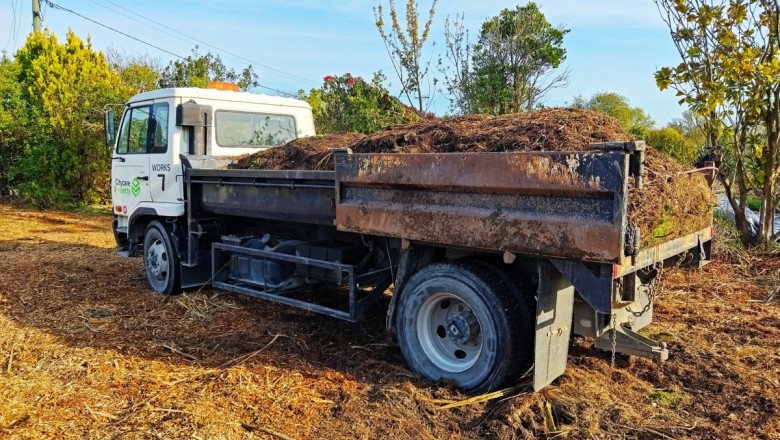Ko Mahi Ko Ora – Support for A Community Initiative
The Citycare Property environmental and sustainability journey continues to flourish as we explore a range of options that contribute to achieving our goals. One of our more recent projects has been support for Ko Mahi Ko Ora, a kaupapa Māori taiao project team working under the Nōkū Te Ao Educational Trust.
Based in Ōtautahi, Christchurch, Ko Mahi Ko Ora is embedded in the community of the Nōkū Te Ao early childhood centres and Te Pā o Rākaihautū. Te Pā o Rākaihautū is a wānanga (learning village) committed to educational success for whānau, from early childhood, primary and secondary schooling to tertiary education. They are based at the former Linwood Intermediate campus, close to the Christchurch 'Red Zone'.
Ko Mahi Ko Ora are currently kaitiaki (guardian) for an area in the Christchurch Residential Red Zone. The area was historically a wetland mahika kai (food gathering area) for mana whenua near a settlement at Waikākāriki (Horseshoe Lake). The settlement is known as Te Ōraka. Under a lease agreement that Ko Mahi Ko Ora has with the Christchurch City Council, they are undertaking whakahaumanu oneone (soil remediation) in a non-profit, micro-enterprise model. Whakahaumanu translates as to revive or restore to health, which is exactly what the team at Ko Mahi Ko Ora are aiming for with their project supported by students from their partner organisations.
According to Oliver Perryman from Ko Mahi Ko Ora their practices can be summarised as
Puku Māra - which translates closest to ‘digestive gardening’. They bring green waste to the site and have established composting activities with the end product used to replenish the soil. “Puku Māra as a term is unique to Ko Mahi Ko Ora. You could say we’re remediating soil by feeding the whenua’s natural digestive and remedial systems. As such it is a Nature-based Solution (NbS) drawing on Mātauranga Māori held within the Nōkū Te Ao community and curricula.
“Material brought onto the Red Zone site breaks down in situ. We’re not a ‘composting depot’ trying to accelerate decomposition and on-sell compost products. Consequently, we’re not using machines that cannot process certain biomass such as Harakeke and Tī Kōuka, both taonga species to Ngai Tahu,” says Oliver.
And this is where Citycare Property comes into the picture. One of our sustainability goals is to reduce the amount of waste we send to landfill and each week our green waste generated through our Open Space Management contracts is significant.
The opportunity was first identified in a waste audit undertaken by Sustainably, a local waste minimisation consultancy, which highlighted that the fibrous material present was able to be composted if connected with community initiatives such as Ko Mahi Ko Ora.
We approached Ko Mahi Ko Ora in 2023 to consider sending green waste to their site, we negotiated a work programme that involves contributing green waste generated through out Christchurch International Airport campus contract to support the Puku Māra project.
“Once a fortnight we send a truckload of waste to the site and the best bit is that our waste includes several native species like Harakeke which cannot be reused in other composting sites because the shoots are so tough they can damage machinery. It is great that while achieving our environmental goals we can also support a community initiative that is helping with soil regeneration, and at the same time supporting young people and the wider community to better understand our natural environment,” said Melissa Keys, Sustainability and Environment Manager with Citycare Property.
As a further contribution to the project the Citycare Property team joined with the wider Ko Mahi Ko Ora community to volunteer time to assist with planting orchard trees at Te Pā o Rākaihautū. Citycare Property also contributed the fruit trees for planting. “It is fantastic to see young people learning where food actually comes from and how they can contribute to the process,” said Melissa.
And Oliver says Citycare Property have been a great collaborator. “Citycare Property recognise the needs of our kaupapa. They work with integrity and deliver clean material streams with next to no plastic contamination. In addition to dropping woodchip to our red zone site, Citycare Property are supporting our food forest establishment at Te Pā o Rākaihautū in Linwood. This is particularly significant for a school community in the vulnerable Ka Ora Ka Ako catchment, not to mention the ‘food desert’ of Linwood, Bromley and Aranui,” concluded Oliver.
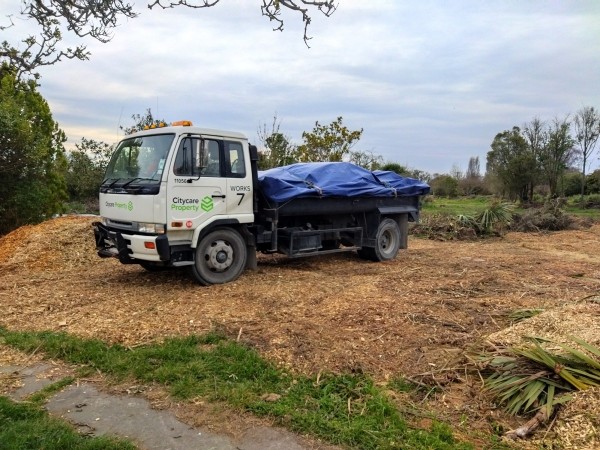
|
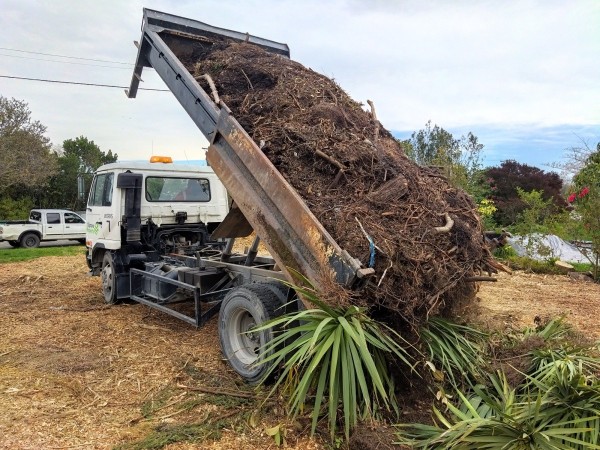
|
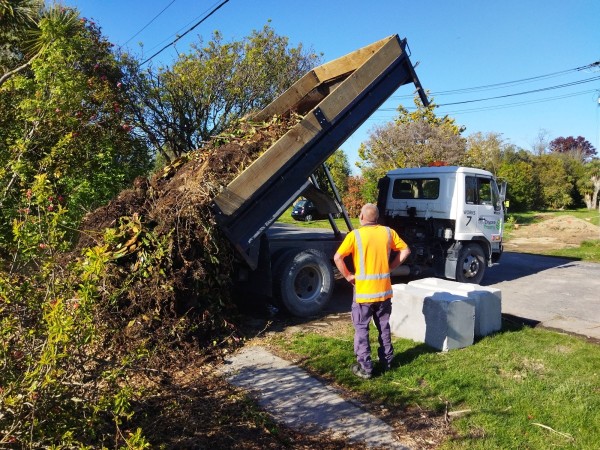
|
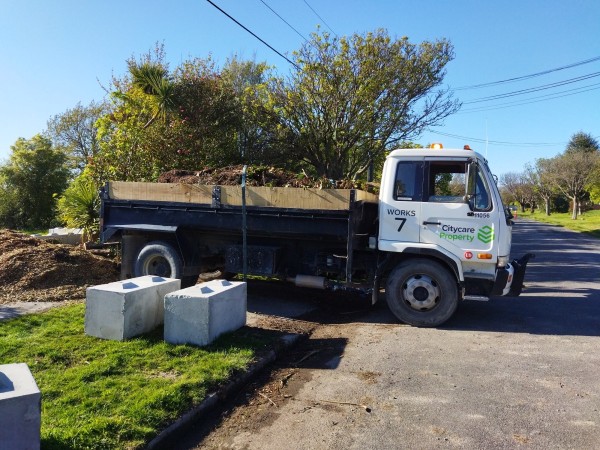
|
